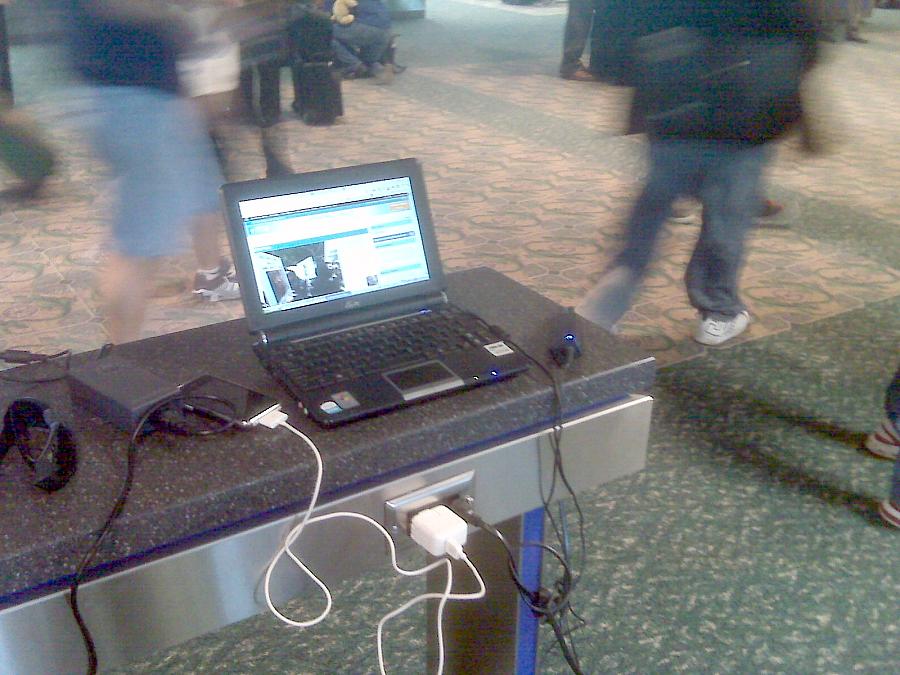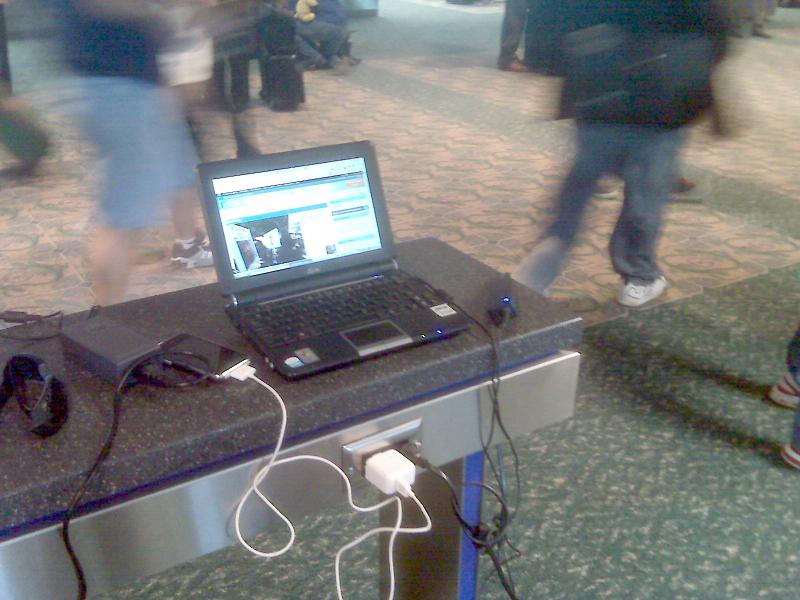SXSW Interactive: Health media junkies spoiled with choices

Even though I'm no longer a SXSW Interactive newbie, this year's huge selection of health-related panels has my head spinning.
The geek in me is drawn to all the mobile application and gadget panels which will showcase eyes-light-up technology that promise everything from help losing weight to pocket-size medical devices that can collect and send data in amazing ways. The reporter in me wants to follow the journalism track all the way through and spend time with my colleagues in our little corner of the media world. But the storyteller in me is drawn most to the panels that blend the tech and human elements of health media.
While I haven't nailed down all my panel selections for every hour of the five-day conference, here are some themes I'll be exploring in Austin.
Bridges to Communities
At the second seminar meeting of the 2011 California Health Journalism Fellowships last week, many fellows were concerned that they were not connecting enough with their communities. But they wondered if the Internet actually provided a way for them to connect, especially with low-income and rural communities, or if it was just a distraction from the real work of boots-on-the-ground reporting. I have my own thoughts on managing social media connections with a variety of communities, but my work philosophy is constantly evolving. Several panels at SXSW Interactive focus on the question of connecting with communities online and I'll be mining them for new ideas.
"Popping Your Bubble" will feature speakers from the Chickasaw Nation, Menominee Nation, the Center for Rural Strategies and Native American Public Telecommunications. The panel will address some interesting questions: How do people without smartphones -- and sometimes without reliable broadband access -- "cope and compensate." What online tools can we use to reach these audiences?
I'll be revisiting the research of Aimee Roundtree. Last year, Roundtree introduced her surveys of health organizations' use of Facebook, the good and not-so-good ways they tried to build communities, and I'll be looking see what new data and findings she brings to SXSW this year. Online video producer Trevite Willis will also offer insights into "developing a community of color." And in the well-titled "Penny Press" panel, speakers will discuss how news media can engage with low-income audiences and still make a profit.
Friending Pharma
This panel looks fascinating: How does big pharma use social media to interact with patients? What are the ethical lines? The panel features a health blogger, as well as patient advocates and industry representatives.
Reviewing Health Care
Should health care be reviewed like restaurants? Should the media be reviewing or gathering reader reviews? This will be a panel of people with diverse views -- legal, advocacy, health pracitioner and a Yelp! vice president -- that I hope will say a lot about how people look for health care online.
Borrow from Developing Countries?
The panel, including the indefatigable Andre Blackman, features ideas about digital health from the developing world to provide health care in the United States, and could give some insight into some of the next big stories in health.
Communicating Complex Ideas
Journalists have a lot of new tools for explaining science to readers. Within the limits of deadlines and diminishing resources, what are the best new ways to tell great health stories that are both data-driven and compelling? In "What Journalism Can Learn from Science," editors from The Economist and NPR will outline how they manage and make use of an "onslaught of information." "Rethinking How to Communicate Science" taking into account visualization and technology to ask the question, how should how we explain science evolve?
Staci Baird will be on a panel called "Snackable Content," about writing short and well, and Susan Mernit will sit on a panel about the "new codes of rights and wrongs" for news entrepreneurs.
Curation and Aggregation
At Reporting on Health we offer Daily Briefings of health news, a Facebook page where members can share their picks, and a Tumblr with even more content to explore. Clearly we are in a media culture that depends heavily on sharing. But what does this kind of aggregation means for the health news? What are the ground rules for linking, embedding and passing on reports about studies, outbreaks and new medical procedures? How much responsibility does a journalist who shares news they didn't produce have for the accuracy of the content? I'll be looking for ideas about how and why journalists should (or shouldn't) be sharing an summarizing news on the Internet.
 I've made my overbooked and evolving schedule public, if you'd like to see more of my panel picks. But please do share your choices in comments or to my Twitter account @angshah. And if this is your first time at SXSW Interactive, here's my one piece of advice: Don't forget your chargers.
I've made my overbooked and evolving schedule public, if you'd like to see more of my panel picks. But please do share your choices in comments or to my Twitter account @angshah. And if this is your first time at SXSW Interactive, here's my one piece of advice: Don't forget your chargers.
(Thanks to Timo Chen for the photo. I met him on the flight to Texas. He created the soundtrack to Sunset Stories, which will be screened at SXSW Film.)

